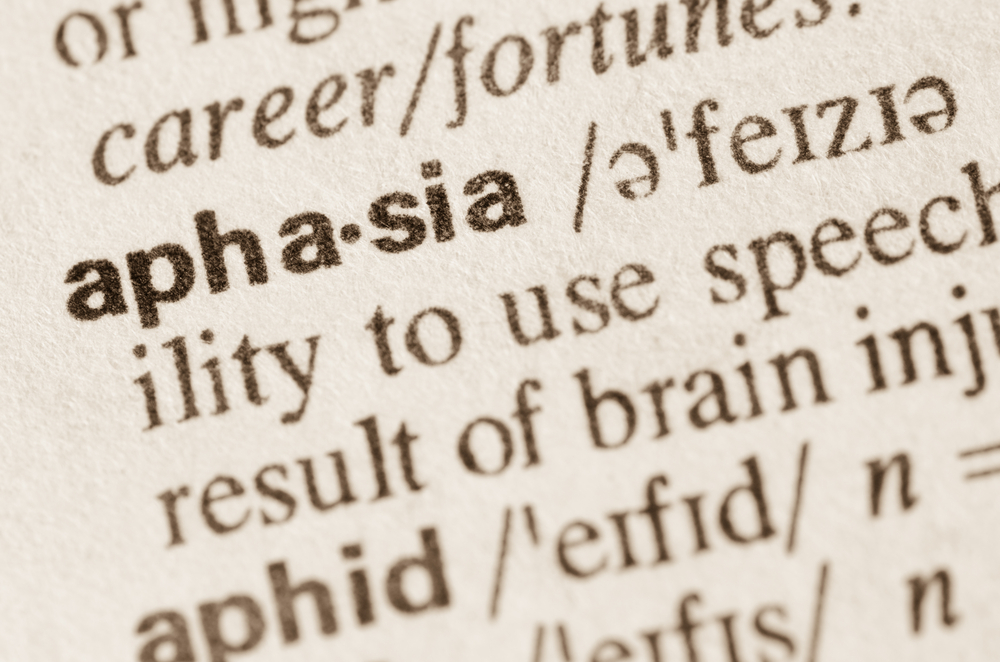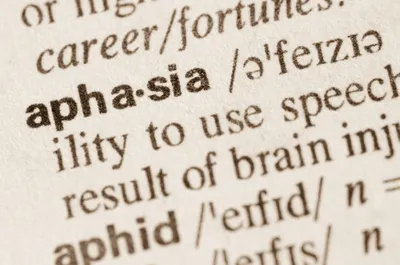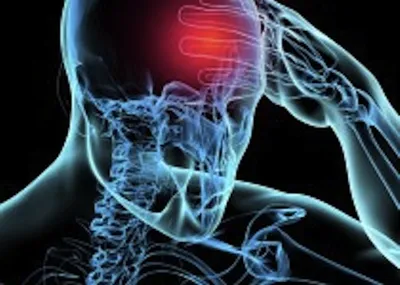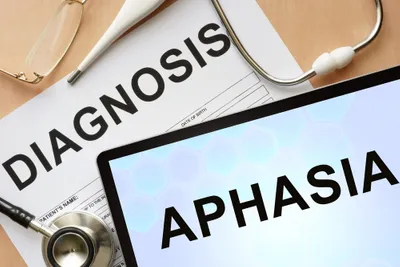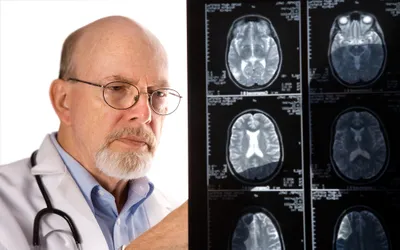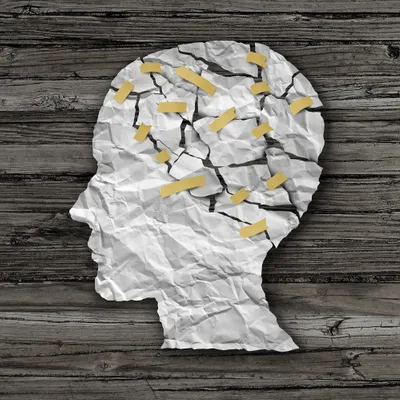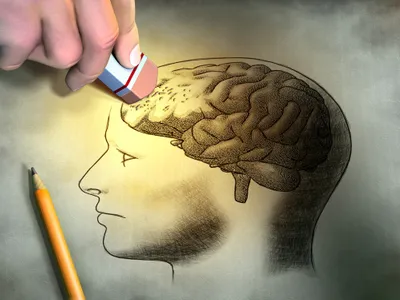June is Aphasia Awareness Month, but many have likely never heard of this progressive and degenerative communication disorder that can affect speech and language, both verbal and written.
Aphasia typically results after a brain injury, such as a stroke, head trauma, or tumor, causing brain cell damage to the areas of the brain responsible for speech (left side) and/or communication (right side) as well as body control on either the left or right hand side of the body. Here are six facts about Aphasia…
1. Aphasia Prevalence
Statistics indicate that there are currently around 2 million individuals in the U.S. living with aphasia. An additional 180,000 will develop the communicative disorder each year.
According to research from the National Aphasia Association, aphasia is more prevalent than Muscular Dystrophy, Cerebral Palsy, and Parkinson’s Disease, even though many of us aren’t familiar with the condition.
2. What Causes Aphasia?
The National Aphasia Association (NAA) explains that this communication disorder affects speech, reading and writing abilities and almost always occurs following a brain injury (i.e., a stroke, head injury, brain tumor, or infection). For instance, 25 to 40 percent of stroke survivors develop aphasia.
Common in older patients after the incidence of a stroke, aphasia can range from severe—making communication via speech, reading, or writing completely non-existent—to mild, where patients suffer specific language issues (i.e., inability to read, put words in the proper order, or recall certain everyday objects).
3. Aphasia Types
The Mayo Clinic outlines 3 different types of aphasia: Broca (or Nonfluent), Wernicke (or Fluent), and Global aphasia. Patients with Broca aphasia have typically suffered damage to the brain’s left frontal lobe, which affects the ability to form full sentences and get words out. They may also suffer right side paralysis and frustration because they understand what others are saying yet have difficulty communicating.
Global aphasia often causes extreme disability (as far as comprehending and expressing communication) following damage to the area of the brain responsible for language (the mid-left side of the brain). Lastly, Wernicke (or Fluent) aphasia is also common to those with damage to the brain’s language network, however, it causes issues with spoken language (i.e., mixed up sentences and misplaced words).
4. Temporary Aphasia
The temporary blockage of blood flow to the brain can lead to what medical professionals call temporary aphasia. In cases of temporary aphasia, patients may suffer weakness or paralysis in the leg and arm on the body’s right hand side.
Temporary aphasia is most common to individuals who suffer from seizures, migraines, or a transient ischemic attack (TIA) in which blood flow can stalled to the brain and the risk of stroke is higher. The NAA reports that if aphasia symptoms continue for longer than 2 to 3 months following a stroke, a complete recovery is rare. However, some stroke patients can and do improve slowly and gradually in the years following a stroke with the help of speech therapy.
5. Symptoms of Aphasia
Aphasia is often tricky to diagnose as it is, itself, a symptom of an existing brain injury (i.e., head trauma, stroke, or brain tumor). The symptoms will often present based on the severity of the brain damage, and are also dependant on the location of cell damage in the brain.
However, the Mayo Clinic says those experiencing aphasia after a brain injury are prone to symptoms that impact verbal speech (language and comprehension skills) as well as written communication. Aphasia can present when patients speak or write sentences that don’t make sense, substitute misplaced or incomprehensible words, use short sentences, or are unable to understand others.
6. Aphasia vs. Alzheimer’s Disease
To many, aphasia may sound very similar to Alzheimer’s disease as far as the symptoms it presents. However, the 2 conditions are very different.
While both aphasia and Alzheimer’s patients can both struggle with language skills and communication, the intelligence of patients with aphasia stays completely unimpaired. This often means that while patients can mentally access thoughts, ideas, names, and words they often can’t communicate them verbally and in written form, which can cause deep frustration.
